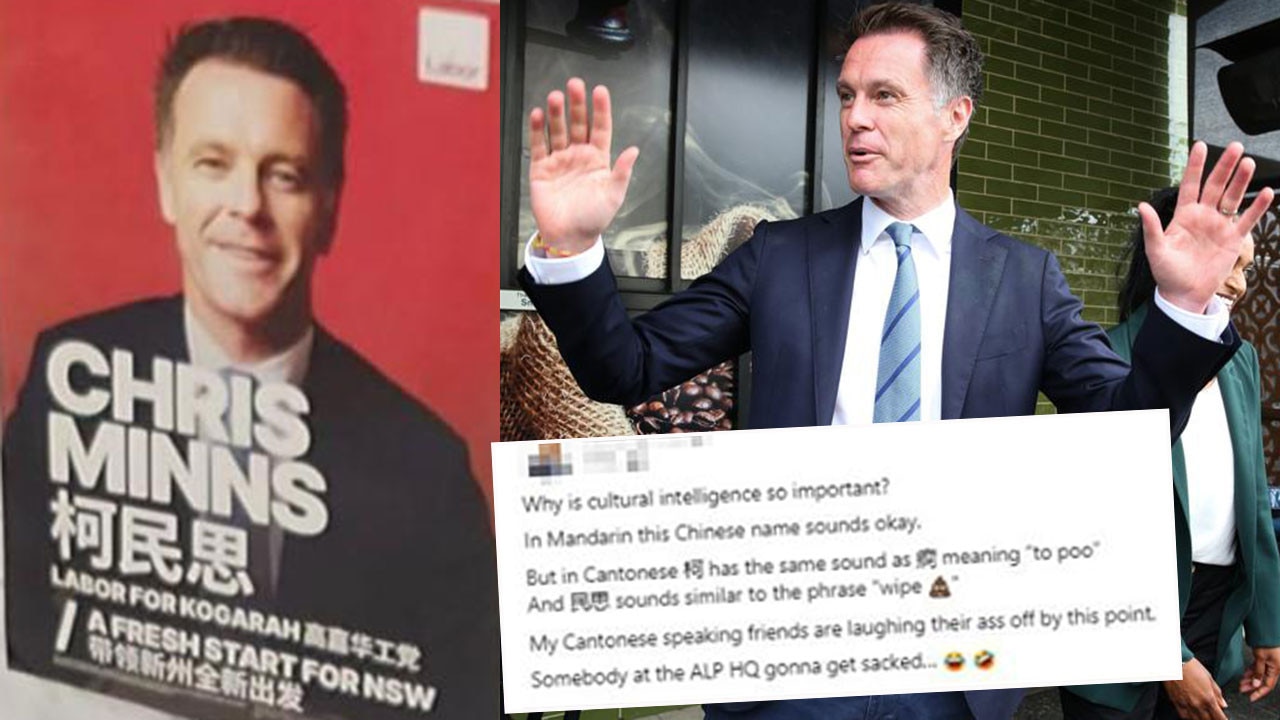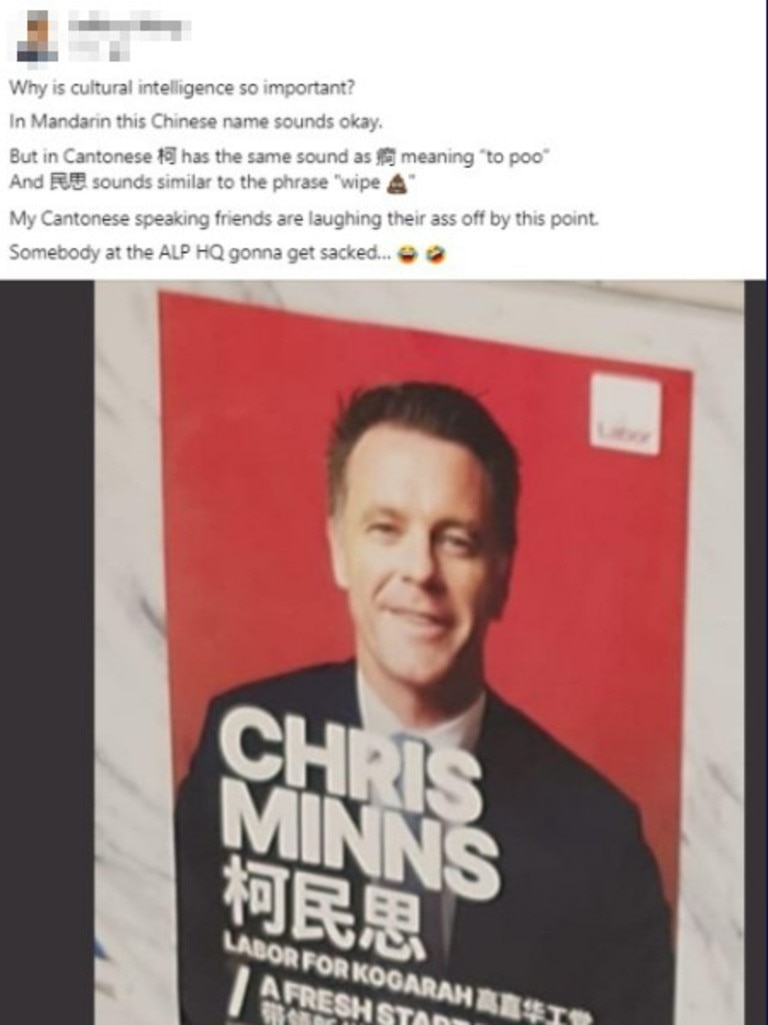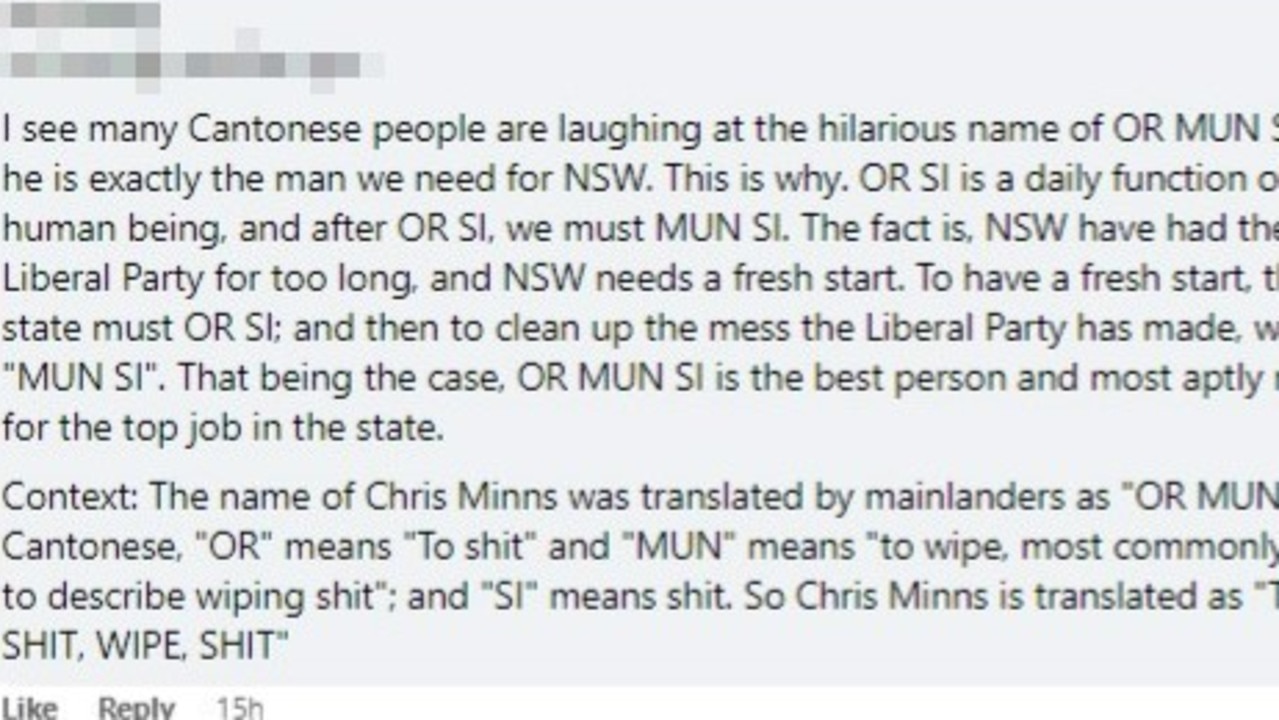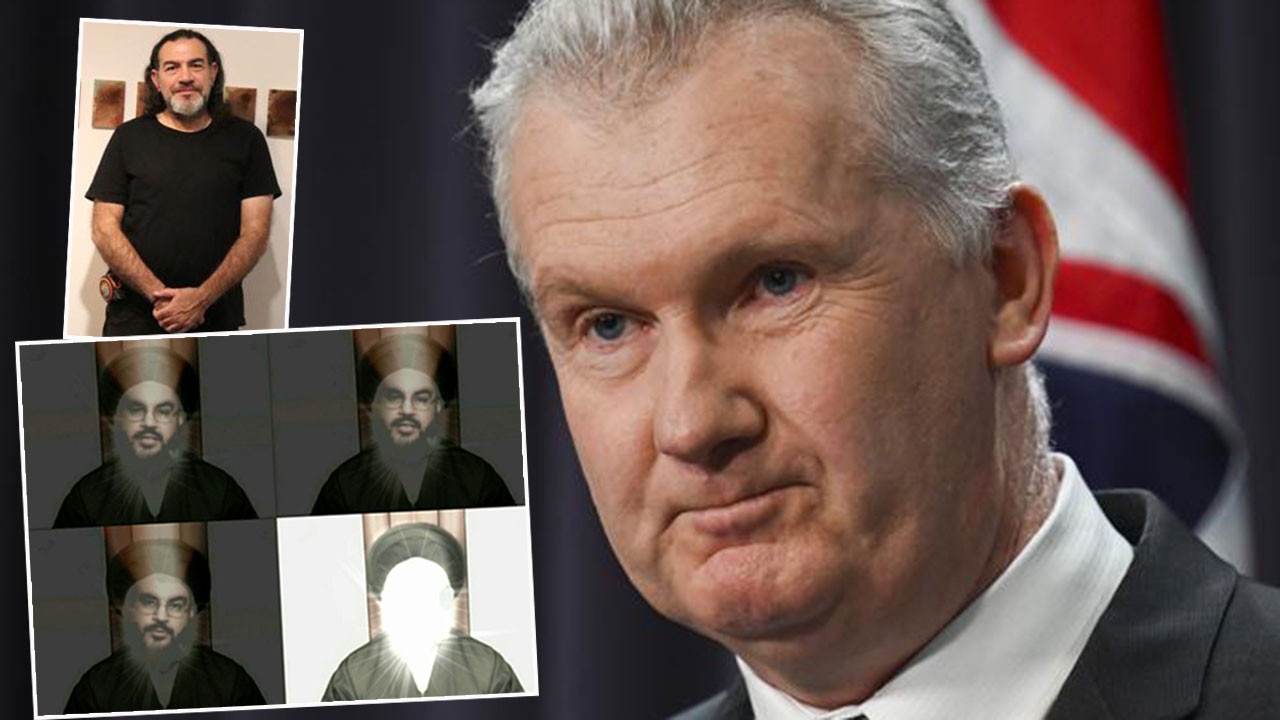Vote 1 for Number 2: Chris Minns’ Chinese translation gets flushed
Cantonese speakers say that posters for the Labor leader translate his name in a way that, when spoken aloud in their dialect, can cause a stink.

Local Cantonese speakers have claimed that Chris Minns’ Chinese language campaign posters have been “insensitively” translated and are more likely to make them want to go to the bathroom than the voting booth.
Posters for Mr Minns seen around his electorate of Kogarah have been sighted with his name translated into three simplified Chinese characters which roughly mean “Chris Minns, for the people”.
However Cantonese speakers have said that when spoken aloud together in their dialect the sound they make, “Or Mun Si”, sounds very similar to an expression for using the toilet.
“The characters themselves don’t mean anything negative at all,” said Sydney-based lawyer Ivan Hung.
“But when you put it all together and say it aloud in Cantonese, it sounds very much like pooing and cleaning up after yourself.”

“It’s all in how you speak it, it’s a bit insensitively translated, and I wish they’d given it a bit more thought.”
Cantonese speaking locals have also been discussing the posters on social media.

One individual wrote that “In Mandarin, this Chinese name sounds OK”, referring to the translation of Mr Minns’ name into Chinese characters.
“But in Cantonese (the character) has the same sound as (the character meaning) ‘to poo’”.
“My Cantonese speaking friends are laughing their ass off by this point.”
Another wrote,; “I am going to volunteer for the ALP just so that I can have a very serious face and hand out flyers saying ‘(please vote for) OR MUN SI!’.”
The Daily Telegraph has also spoken with a number of Cantonese speakers who said the characters for Mr Minns’ name could be easily misinterpreted to mean something toilet-related in their dialect.

According to the demographics website Informed Decisions, around 13.5 per cent of Kogarah residents speak Chinese at home, with 5.2 per cent of residents speaking the Cantonese dialect.
One Liberal source said that the posters were “definitely making Cantonese speakers giggle” in Kogarah.
The source pointed out that Labor lost the 2019 state election after reports that then-leader Michael Daley had comments about “foreigners ... moving in and taking their jobs” that were widely interpreted as being anti-Asian.
A Liberal review of the 2022 election also found that the Morrison government lost votes in seats with large Chinese populations due to its strong rhetoric on Beijing, helping to cost it Reid, Bennelong, and Parramatta.
“Rebuilding the party’s relationship with the Chinese community must … be a priority during this term of Parliament,” the review said.
This would not be the first time an Australian politician came to grief over the difficult business of translating English into Chinese.
In 2009, then-prime minister Kevin Rudd told a group of ANU students about a mishap when he was a junior diplomat performing translation duties in Beijing.
“Apparently what I’d said as I sought to elevate (an) expression into a more classical form was that China and Australia are currently experiencing fantastic mutual orgasm,” he said.
“Ever since then, our Chinese friends have remembered my visits to Beijing, ‘Ah, you were the one.”
Mr Minns’ office has been contacted for comment.
More Coverage
Read related topics:NSW State Election 2023





